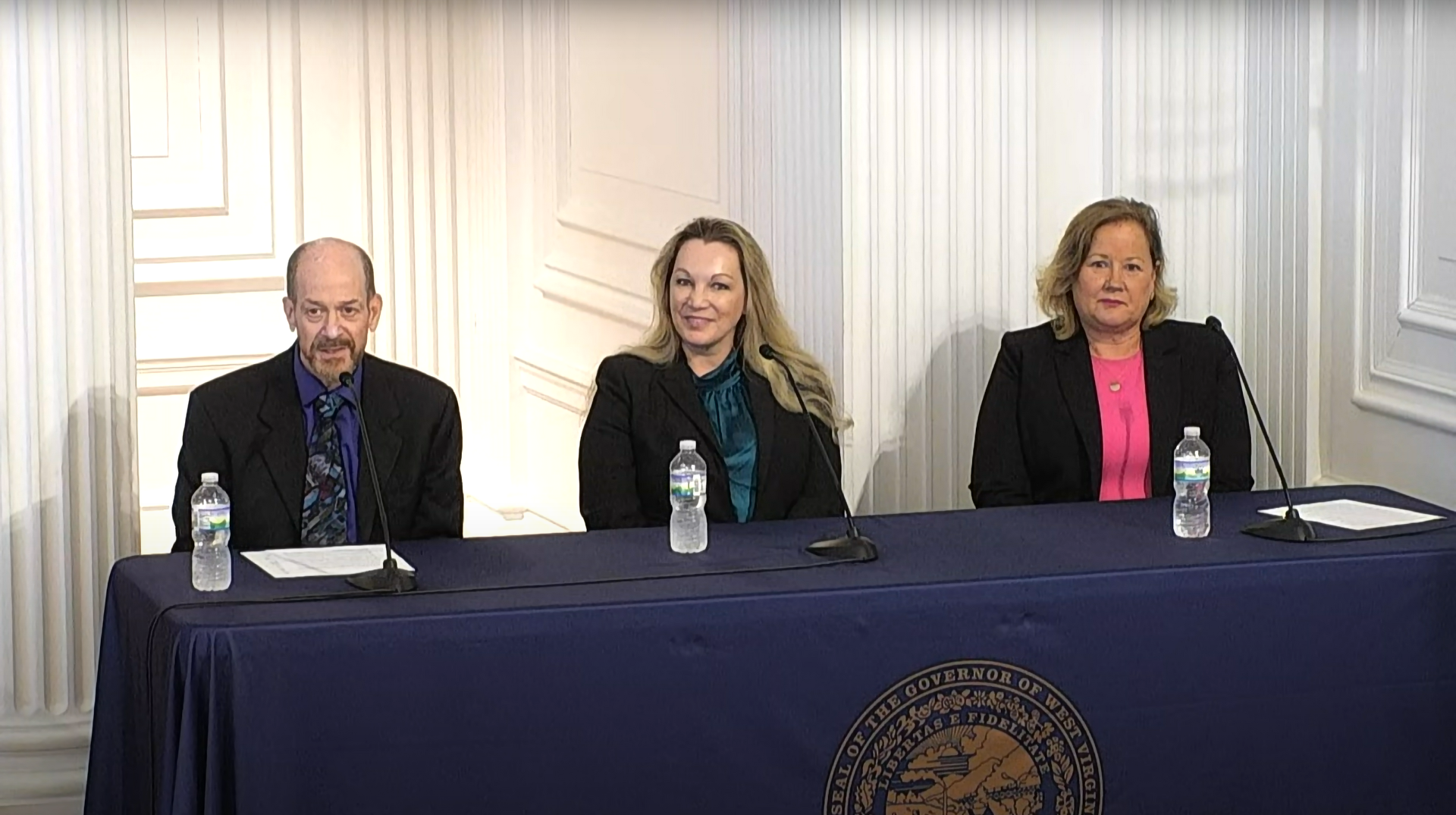Representatives from the West Virginia Department of Health and Human Resources (DHHR) presented their budget to the Senate Finance Committee Monday amid a flurry of questioning from senators.
Representatives from the West Virginia Department of Health and Human Resources (DHHR) presented their budget to the Senate Finance Committee Monday amid a flurry of questioning from senators.
Interim Cabinet Secretary Dr. Jeffrey Coben, who has been in his position for seven weeks, began by speaking about his goals and priorities. They included improvements to benefit the department and the citizens of West Virginia. He aims to improve communications, transparency and accountability, not only within the DHHR, but with the legislative body, and external stakeholders.
“While I’m acting in an interim capacity, I’m not here to just be a placeholder, we need to take action to optimize the critical services that we provide to West Virginia’s most vulnerable populations,” Coben said. “And I’m committed to making decisions and moving forward with new initiatives.”
Coben said during his time working in other capacities throughout the state in the past 12 years, he has spent a lot of time working with the DHHR and agreed with the McChrystal Report findings regarding a lack of workforce.
“And I’ve always felt there’s been one common theme, good people who were working hard, but not enough of them. So when I read the McChrystal report, it didn’t surprise me at all that the biggest challenge identified in that report had to do with the workforce,” he said.
The DHHR reported their current overall vacancy rate at 24 percent, noting the COVID-19 pandemic put a strain on an already stretched system. However, the DHHR is a multi-billion dollar agency with myriad departments under its umbrella. There are many who want to see it reorganized.
Tara Buckner is a chief financial officer at the DHHR. She presented a $7,674,467,799 budget for fiscal year 2024, noting 75 percent of that is federal funding.
“That number increased significantly during the pandemic, primarily due to increased FMAP and programs such as Medicaid, foster care and adoption, lack of capacity grants and public health and child care funding in the Bureau for Family Assistance,” Buckner said. “The funding was to supplement and not supplant existing funding. And the enhanced funding was to be used to fund new or increased costs such as rate increases.”
Shuffling of persons and papers filled the committee room, with most appointees to the DHHR new to their positions, or filling in for others, many were left to consulting with one another or deferring to one another and other witnesses in attendance to answer senators’ questions.
In November 2022, the McChrystal Report was released, calling for overcoming funding obstacles, improving technology resources and answering pervasive workforce challenges.
The report recommended improving stalled, statewide health and human service outcomes calls for creating leadership teams, improving interdepartmental communications and seeking proactive input from the many bureaus that make up DHHR.
Coben said the hiring of a new chief operating officer as well as the appointment of two additional deputy secretary positions is most of the movement made toward accommodating the recommendations in the report.
“Beyond that, I haven’t seen specific movement with regards to the other recommendations in the report, which is, if I recall, had to do more with establishing a strategic work plan overall for the department, as well as some integration teams,” Coben said. “So I would say the costs are at this point, the costs are certainly not to the level that you’ve indicated. And I think, honestly, it’s been a little bit on pause, given this shift in leadership, as well as the changes that might occur as a result of the Senate bill and House Bill 2006.”
Both of those bills are moving through the process and aim to break the DHHR into three separate units. One for Health, one for programs like child protective services and a third for medical facilities like state-run hospitals.
Sen. Jason Barrett, R-Berkeley, asked Coben if he meant that the implementation of the report is on hold until after the legislative session.
“I’m not sure that I would say it’s on hold pending the completion of the legislative session. I think I’m trying to assess, you know, whether or not implementing it needs to be a phased approach right now, given the circumstances that we find ourselves in,” Coben said.
Sen. Rupie Phillips, R-Logan, asked Coben if he thought the DHHR is too big. In response, Coben said both organizational models are successful in other states and has no personal opinion on the matter.
“I come to this position without any predisposed notion as to whether or not the agency should be a singular agency or whether it should be divided into other parts,” Coben said. “I personally believe that this can work either way. I’ve seen it work in states where there’s a single department, I’ve seen it work in states where there are multiple departments. I’ve lived in both of those types of states and work with agencies under those different models.”
